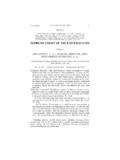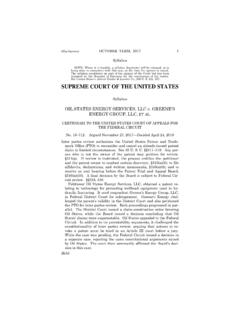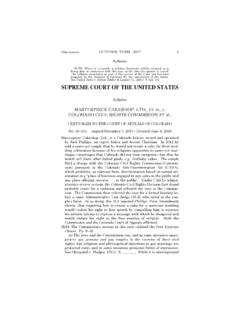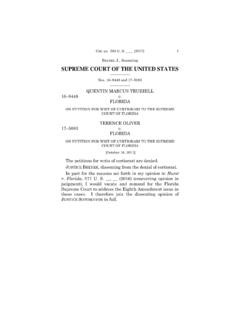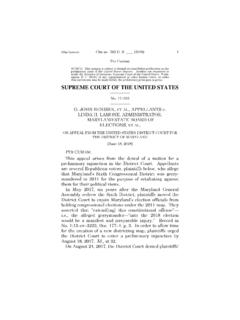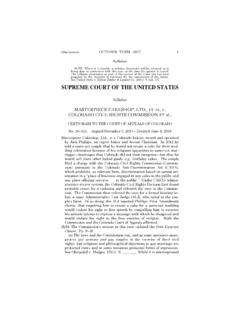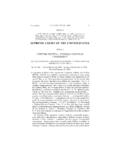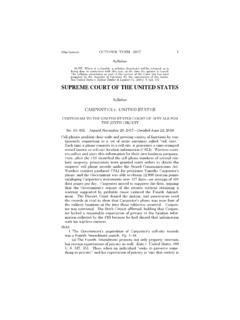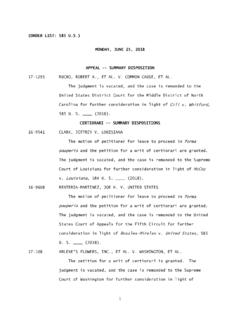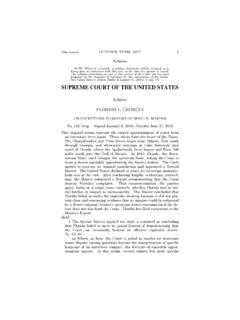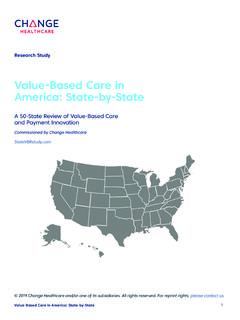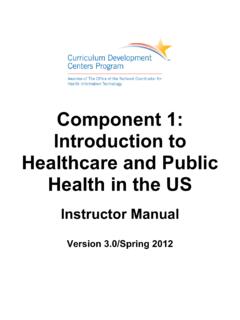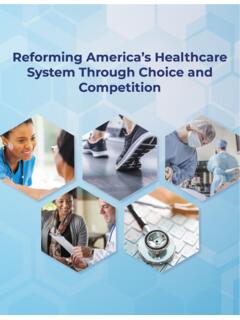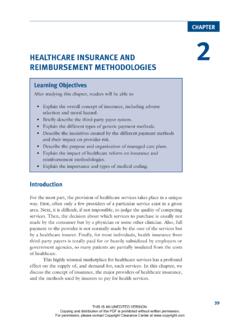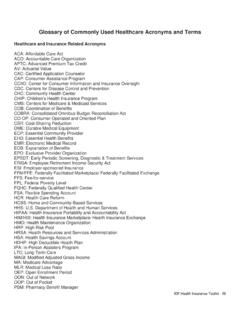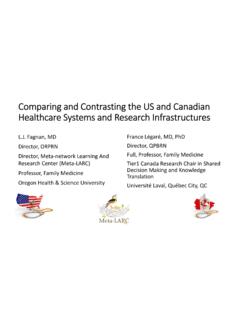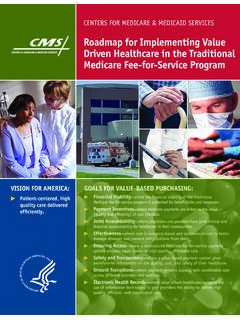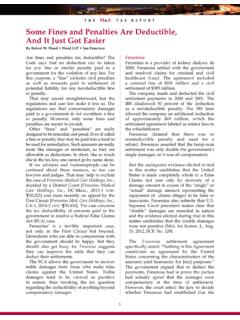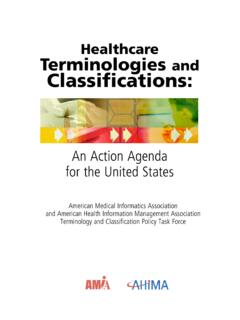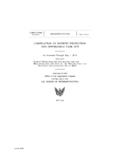Transcription of SUPREME COURT OF THE UNITED STATES
1 1 (Slip Opinion) OCTOBER TERM, 2011 Syllabus NOTE: Where it is feasible, a syllabus (headnote) will be released, as isbeing done in connection with this case, at the time the opinion is syllabus constitutes no part of the opinion of the COURT but has beenprepared by the Reporter of Decisions for the convenience of the reader. See UNITED STATES v. Detroit Timber & Lumber Co., 200 U. S.
2 321, 337. SUPREME COURT OF THE UNITED STATES Syllabus NATIONAL FEDERATION OF INDEPENDENT BUSINESS ET AL. v. SEBELIUS, SECRETARY OF HEALTH AND HUMAN SERVICES, ET AL. CERTIORARI TO THE UNITED STATES COURT OF APPEALS FOR THE ELEVENTH CIRCUIT No. 11 393. Argued March 26, 27, 28, 2012 Decided June 28, 2012* In 2010, Congress enacted the Patient Protection and Affordable CareAct in order to increase the number of Americans covered by health insurance and decrease the cost of health care.
3 One key provision isthe individual mandate, which requires most Americans to maintain minimum essential health insurance coverage. 26 U. S. C. individuals who are not exempt, and who do not receive healthinsurance through an employer or government program, the means ofsatisfying the requirement is to purchase insurance from a private company. Beginning in 2014, those who do not comply with the mandate must make a [s]hared responsibility payment to the Fed-eral Government.
4 5000A(b)(1). The Act provides that this penalty will be paid to the Internal Revenue Service with an individual s tax-es, and shall be assessed and collected in the same manner as tax penalties. 5000A(c), (g)(1).Another key provision of the Act is the Medicaid expansion. The current Medicaid program offers federal funding to STATES to assist pregnant women, children, needy families, the blind, the elderly, and the disabled in obtaining medical care. 42 U.
5 S. C. 1396d(a). The Affordable Care Act expands the scope of the Medicaid program andincreases the number of individuals the STATES must cover. For ex- * Together with No. 11 398, Department of Health and Human Ser-vices et al. v. Florida et al., and No. 11 400, Florida et al. v. Department of Health and Human Services et al., also on certiorari to the same COURT . 2 NATIONAL FEDERATION OF INDEPENDENT BUSINESS v.
6 SEBELIUS Syllabus ample, the Act requires state programs to provide Medicaid coverage by 2014 to adults with incomes up to 133 percent of the federal pov-erty level, whereas many STATES now cover adults with children onlyif their income is considerably lower, and do not cover childless adults at all. 1396a(a)(10)(A)(i)(VIII). The Act increases federal funding tocover the STATES costs in expanding Medicaid coverage. 1396d(y)(1).But if a State does not comply with the Act s new coverage require-ments, it may lose not only the federal funding for those require-ments, but all of its federal Medicaid funds.
7 1396c. Twenty-six STATES , several individuals, and the National Federa-tion of Independent Business brought suit in Federal District COURT ,challenging the constitutionality of the individual mandate and theMedicaid expansion. The COURT of Appeals for the Eleventh Circuit upheld the Medicaid expansion as a valid exercise of Congress s spending power, but concluded that Congress lacked authority to en-act the individual mandate. Finding the mandate severable from theAct s other provisions, the Eleventh Circuit left the rest of the Act in-tact.
8 Held: The judgment is affirmed in part and reversed in part. 648 F. 3d 1235, affirmed in part and reversed in part. 1. CHIEF JUSTICE ROBERTS delivered the opinion of the COURT with respect to Part II, concluding that the Anti-Injunction Act does notbar this suit. The Anti-Injunction Act provides that no suit for the purpose of restraining the assessment or collection of any tax shall be main-tained in any COURT by any person, 26 U. S. C. 7421(a), so that thosesubject to a tax must first pay it and then sue for a refund.
9 The pre-sent challenge seeks to restrain the collection of the shared responsi-bility payment from those who do not comply with the individualmandate. But Congress did not intend the payment to be treated asa tax for purposes of the Anti-Injunction Act. The Affordable Care Act describes the payment as a penalty, not a tax. That label cannot control whether the payment is a tax for purposes of the Con-stitution, but it does determine the application of the Anti-Injunction Act.
10 The Anti-Injunction Act therefore does not bar this suit. Pp. 11 15. 2. CHIEF JUSTICE ROBERTS concluded in Part III A that the indi-vidual mandate is not a valid exercise of Congress s power under the Commerce Clause and the Necessary and Proper Clause. Pp. 16 30.(a) The Constitution grants Congress the power to regulate Commerce. Art. I, 8, cl. 3 (emphasis added). The power to regulatecommerce presupposes the existence of commercial activity to be reg-ulated. This COURT s precedent reflects this understanding: As ex-pansive as this COURT s cases construing the scope of the commerce 3 Cite as: 567 U.
